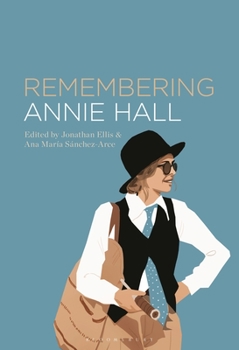Remembering Annie Hall
Since its release, Annie Hall has established itself as a key film for Woody Allen's career and the history of romantic comedy more generally. At the 1978 Academy Awards, it won Oscars for Best Film, Best Director, Best Screenplay, and Best Actress and is regularly cited as one of the greatest film comedies ever released, credited with influencing directors such as Wes Anderson, Noah Baumbach, Richard Linklater, Greta Gerwig and Desiree Akhavan. This lively collection brings a new ethical and philosophical perspective to bear on Allen's work quite different from previous generations of scholars.
At the same time as exploring the film's continuing influence on contemporary cinema, this book's contributors engage explicitly and implicitly with ongoing debates about Allen's cinematic output following the renewal of accusations against Allen by his adopted daughter Dylan Farrow in 2014 and 2018. The book is alive to debates within film studies about the limits of auteur theory and the role of the spectator.Format:Hardcover
Language:English
ISBN:1501358499
ISBN13:9781501358494
Release Date:September 2023
Publisher:Bloomsbury Academic
Length:272 Pages
Weight:1.17 lbs.
Dimensions:0.6" x 6.0" x 9.0"
Customer Reviews
0 rating





